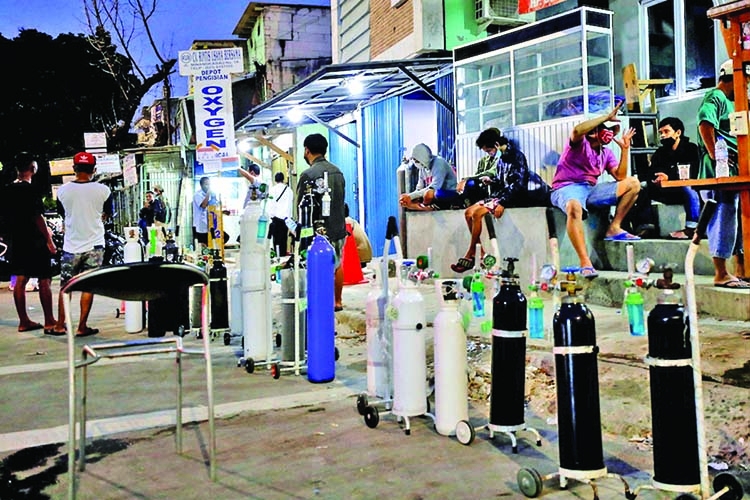Concern grows over Indonesia's regions as Delta variant ravages Java

Concerns are mounting in Indonesia over the ability of its regions to cope with a spike in corona virus cases, according to its health minister, as the highly transmissible Delta variant spreads quickly across the world's largest archipelago.
Indonesia is struggling to slow the pace of Covid-19 transmission, with record daily case numbers on six of the past 10 days, including 47,899 new infections yesterday, despite new containment measures.
The Delta variant first identified in India has been found in 11 areas outside of the densely populated Java island, health minister Budi Gunadi Sadikin said.
Cases and bed occupancy rates have risen in parts of Sumatra, Papua and Kalimantan, or Indonesian Borneo, and far-flung regions like West Papua were especially concerning, he told parliament this week.
We must monitor this tightly, because if there's something happening there, their health capacities are below Jakarta or Java," Budi said.
In East Nusa Tenggara, infections have more than doubled in the last three days, while in Lampung on Sumatra, bed occupancy on Monday had reached 86%, East Kalimantan at 85 per cent, and West Papua at 79 per cent.
Ismen Mukhtar, an epidemiologist in Lampung, said Indonesia's regions were extremely vulnerable. "Health facilities are urgently needed because they save lives," he said.
"But what's more important is limiting transmission."
Java hospitals have been deluged in recent weeks, with many people struggling to get treatment. Most of the 550 people who have died in isolation since June were on Java, according to independent data initiative group Lapor Covid-19.
As health experts warn Indonesia could be the next India, the government has scrambled to boost capacity and secure sufficient oxygen supply.
Senior minister Luhut Binsar Pandjaitan, who spearheads the emergency response, on Wednesday said oxygen supplies were well managed, with more than 1,500 oxygen generators expected to arrive from Singapore and China.
More than 2,000 newly graduated doctors and 20,000 nurses would soon be deployed to hospitals, he added.
